Dionne Warwick
Born to parents Mansel Warrick and Lee Drinkard in East Orange, New Jersey, Dionne Warrick began singing gospel with her family (including younger sister Delia, known professionally as Dee Dee Warwick), and started her professional career after graduating from the Hartt College of Music in Hartford, Connecticut, from which she now holds a Doctorate. In the earliest stage of her career, she sang backing vocals along with Dee Dee on records by Chuck Jackson, Dinah Washington and Solomon Burke, among others.
Her first solo single for Scepter Records was released in November, 1962. The song was entitled "Don't Make Me Over", the title (according to legend) supplied by Warrick herself when she snapped the phrase at producers Burt Bacharach and Hal David. Warwick became incensed and shouted the phrase when she found a song she wanted to record, "Make It Easy on Yourself" had been given to another artist, Jerry Butler. From the phrase, Bacharach and David created an elegant R&B recording, which became a top 40 pop hit in the US (and a top 5 US R&B hit.) Famously, Warrick's name was misspelled on the credits, and she soon began using the new spelling (i.e., "Warwick") both professionally and personally.[1]
The two immediate follow-ups to "Don't Make Me Over" were largely unsuccessful, but 1964's "Anyone Who Had a Heart" was Warwick's first top 10 pop hit. This was followed by "Walk on By", a major hit that launched her career into the stratosphere. For the rest of the 1960s, Warwick was a fixture on the US and Canadian charts, and virtually all of Warwick's singles from 1962-1972 were written and produced by the Bacharach/David team.
In fact, Warwick weathered the British Invasion better than most American artists, although she released only a few hits in the UK during the late 1960s, most notably "Walk On By" and "Do You Know the Way to San Jose". In the UK a number of Bacharach-David-Warwick songs were covered by UK singer Cilla Black, most notably "Anyone Who Had a Heart", which went to #1 in the UK. This upset Warwick and she has described feeling insulted when told that in the UK, record company executives wanted her songs recorded by someone else. Warwick even met Cilla Black whilst on tour in the UK. She recalled what she said to her - " I told her that "You're My World" would be my next single in the States. I honestly believe that if I'd sneezed on my next record, then Cilla would have sneezed on hers too. There was no imagination in her recording." [1]
"You're My World" was, in fact, not released as a single by Warwick -- but it did appear on a later album, Dionne Warwick in Valley of the Dolls. Black, however, went ahead with the single release of "You're My World" in 1964 and the track peaked at #1 UK, #26 US.
[edit] The late 1960s and early 1970s
The late 1960s and early 1970s became a very successful time period for Warwick, who saw a string of Gold selling albums and Top 20 and Top 10 hit singles. The 1967 LP called Here Where There Is Love became a big hit for Warwick, as did her single "I Say a Little Prayer" (on her album The Windows of the World).
Her next big hit was unusual in that it was not written by Burt Bacharach and Hal David, and it was a song that she almost didn't record. While the film version of "Valley of the Dolls" was being made, actress Barbara Parkins suggested that Warwick be considered to sing the film's theme song, written by songwriting team Andre and Dory Previn. The song was to be given to Judy Garland who had been fired from the film. Warwick performed the song, and when the film became a success in the early weeks of 1968, the public wanted a recording of the theme. As such, "(Theme From) Valley of the Dolls" was a smash success, as was the Bacharach/David-penned follow-up, "Do You Know the Way to San José". More hits followed in the last two years of the 1960s.
Warwick had become the priority act of Scepter Records with the release of "Anyone Who Had a Heart" in 1963. However, in the post-Woodstock era of the late 1960s, the decision was made that she would begin looking for a major label. Warwick's last recording for Scepter was in 1971. She debuted on Warner Bros. Records -- in a five-year contract that was the biggest contract for a female artist at that time.
Warwick was signed to Warners with Bacharach and David as writers/producers; however, after the "Lost Horizon" disaster of 1973, the songwriting duo not only wasn't working together, they weren't even speaking. While this situation worked itself out in the courts, Warwick would team with a variety of producers, looking for an elusive hit.
Warwick was advised by numerologist Linda Goodman in 1971 to add an "e" to her last name, making Warwick "Warwicke" for good luck. The extra "e" brought more bad luck than good, and the singer removed it in 1975.
[edit] Move to Arista
Her career slowed greatly in the 1970s, with no big hits until 1974's "Then Came You", recorded as a duet with the Spinners and produced by Thom Bell. It was her first US #1 hit on the Billboard Hot 100. Nevertheless, other than this success, Warwick's five years on Warner Bros. Records -- despite the fact that she worked the entire time -- left her almost completely without hits. There were a few quality, but lesser known Disco hits such as "Track of the Cat" and "Once You Hit The Road" -- both of which were produced in 1975 and 1976, respectively, by Thom Bell.
Warwick recorded five albums with Warners: "Dionne", produced by Bacharach and David; "Just Being Myself", produced by Holland-Dozier-Holland; "Then Came You", produced by Jerry Ragavoy; "Track of the Cat", produced by Thom Bell; and "Love at First Sight", produced by Steve Barri and Michael Omartian. The singer's five-year contract with Warners was up for renewal in 1977, and with that, Warwick gladly ended her stay at the label.
This trend ended with the move to a new label and the release of "I'll Never Love This Way Again" in 1979. The song was produced by Barry Manilow. The accompanying album Dionne (not to be confused with the Warner Bros. album of the same name) was her first to go platinum. This was her debut on Arista Records, to which she had been personally signed and guided by the label's founder Clive Davis. Her 1980 album, No Night So Long was not quite as strong but featured the quality title track which became a major hit.
Warwick's next big hit was her 1982 full-length collaboration with Barry Gibb of The Bee Gees for "Heartbreaker". Her previous hit was the duet "Friends In Love" recorded with Johnny Mathis, her good friend and fellow musical legend.
In 1983, Dionne issued one of her finest albums during her time with Arista, titled, "How Many Times Can We Say Goodbye" which was produced by Luther Vandross. Their collaboration had been a lifelong dream of Vandross, who had maintained that he wanted to work with Warwick, Aretha Franklin, and Diana Ross. The album's most successful single became the beautifully emotive, title track, "How Many Times Can Say Goodbye", a duet with Warwick, which despite the production by Vandross, only peaked at #27 on the Billboard Hot 100. The second single, the Dance-pop song "Got a Date", became a moderate hit on the R&B chart. The album only peaked at Number 57 on the Billboard Top 200 album chart, but it did fare better on the R&B chart. Still, however, it was not as commercially successful as the Heartbreaker album the previous year. Warwick would not release another studio album until two years later, 1985's Finder of Lost Loves -- an album that would reunite her with both Barry Manilow and Burt Bacharach.
In 1985, Warwick contributed her voice to the Multi-Grammy award winning charity song: We Are The World, along with vocalists like Michael Jackson, Lionel Richie, Tina Turner and Diana Ross.
In 1986, Warwick led the American Foundation for AIDS Research (AmFAR) benefit single "That's What Friends Are For" with Friends (Gladys Knight, Elton John, and Stevie Wonder); it was a number one hit, and garnered Warwick's fifth Grammy Award. It also marked a reunion of Warwick and song co-writer Burt Bacharach (lyrics by Carole Bayer Sager).
In late 1987, Dionne scored another pop hit and Top 10 R&B chart hit with the song, "Love Power", a duet with Jeffrey Osborne. This song, another written by Bacharach and Carole Bayer Sager, was featured in Warwick's album "Reservations for Two".
[edit] Host of Solid Gold
In January 1980, while under contract to Arista Records, Dionne Warwick hosted a two-hour TV special called Solid Gold '79. This was adapted into the weekly one-hour show Solid Gold, which she hosted throughout 1980 and again in 1985-86.
[edit] 1990s to present
Her career took an unexpected major downturn in the 1990s, with only a few moderate-selling albums released and no major singles. Her most well-received album in 1993 was an effort entitled "Friends Can Be Lovers", which was produced in part by Ian Devaney and Lisa Stansfield. Prominently featured on the album was a tune called "Sunny Weather Lover", which was the first song that Burt Bacharach and Hal David had written together in exactly twenty years from the song's release. It was Warwick's lead single in the US, heavily promoted by Arista, which unfortunately did not reach the Top 40. A follow-up, the steamy, sensual "Where My Lips Have Been" also failed to make the Top 40. During this period, she was perhaps best known for hosting infomercials for the Psychic Friends Network, a 900 number psychic service.
In 2002, Warwick was arrested at Miami International Airport for possession of marijuana. Miami-Dade Police officers reported finding eleven marijuana cigarettes inside a lipstick container. Drug charges were dropped when she agreed to complete a drug treatment program, donate $250 to charity and make an anti-drug public service announcement directed at youth. [2]. Dionne maintains that the cigarettes were dropped in an open bag she was carrying.
In 2005, Dionne Warwick was honored by Oprah Winfrey at her Legends Ball.
Warwick enjoyed one of her largest audiences ever when she appeared on the May 24, 2006 fifth-season finale of American Idol.[citation needed] 36 million U.S. viewers watched Warwick sing a medley of "Walk on By" and "That's What Friends Are For", with longtime collaborator Burt Bacharach accompanying her on the piano.
In 2006, Warwick released My Friends and Me, a duets album on which she sang with various female singing stars, on thirteen of her old hits. It is her first album for the label, Concord Records. The album was produced by her son, Damon Elliott. Among her singing partners were Gloria Estefan, Olivia Newton-John, Wynonna Judd and Reba McEntire. The album's sales have been decent, becoming her first album to make the charts since 1993's critically acclaimed album Friends Can Be Lovers, as mentioned above. The album My Friends & Me peaked at #66 on the Top R&B/Hip-Hop Albums chart. Warwick is currently on a world Tour (she has just visited New Zealand and was a huge success with all concerts a sell out).
[edit] Famous relations
Warwick's sister Dee Dee Warwick also had a successful singing career, scoring a Top 20 R&B hit in the form of "I'm Gonna Make You Love Me" in 1967. In 1971, at the advice of a numerologist, both Dionne and her sister Dee Dee added an "e" to the end of Warwick (thus making their professional last names "Warwicke"). The "e" was eventually dropped in mid-1975.
Warwick's mother, Lee Drinkard, along with many of Warwick's uncles and aunts, were members of The Drinkard Singers, a noted gospel music group which lasted from the 1940s through the 1990s.
One of Warwick's cousins is Whitney Houston.
Her first solo single for Scepter Records was released in November, 1962. The song was entitled "Don't Make Me Over", the title (according to legend) supplied by Warrick herself when she snapped the phrase at producers Burt Bacharach and Hal David. Warwick became incensed and shouted the phrase when she found a song she wanted to record, "Make It Easy on Yourself" had been given to another artist, Jerry Butler. From the phrase, Bacharach and David created an elegant R&B recording, which became a top 40 pop hit in the US (and a top 5 US R&B hit.) Famously, Warrick's name was misspelled on the credits, and she soon began using the new spelling (i.e., "Warwick") both professionally and personally.[1]
The two immediate follow-ups to "Don't Make Me Over" were largely unsuccessful, but 1964's "Anyone Who Had a Heart" was Warwick's first top 10 pop hit. This was followed by "Walk on By", a major hit that launched her career into the stratosphere. For the rest of the 1960s, Warwick was a fixture on the US and Canadian charts, and virtually all of Warwick's singles from 1962-1972 were written and produced by the Bacharach/David team.
In fact, Warwick weathered the British Invasion better than most American artists, although she released only a few hits in the UK during the late 1960s, most notably "Walk On By" and "Do You Know the Way to San Jose". In the UK a number of Bacharach-David-Warwick songs were covered by UK singer Cilla Black, most notably "Anyone Who Had a Heart", which went to #1 in the UK. This upset Warwick and she has described feeling insulted when told that in the UK, record company executives wanted her songs recorded by someone else. Warwick even met Cilla Black whilst on tour in the UK. She recalled what she said to her - " I told her that "You're My World" would be my next single in the States. I honestly believe that if I'd sneezed on my next record, then Cilla would have sneezed on hers too. There was no imagination in her recording." [1]
"You're My World" was, in fact, not released as a single by Warwick -- but it did appear on a later album, Dionne Warwick in Valley of the Dolls. Black, however, went ahead with the single release of "You're My World" in 1964 and the track peaked at #1 UK, #26 US.
[edit] The late 1960s and early 1970s
The late 1960s and early 1970s became a very successful time period for Warwick, who saw a string of Gold selling albums and Top 20 and Top 10 hit singles. The 1967 LP called Here Where There Is Love became a big hit for Warwick, as did her single "I Say a Little Prayer" (on her album The Windows of the World).
Her next big hit was unusual in that it was not written by Burt Bacharach and Hal David, and it was a song that she almost didn't record. While the film version of "Valley of the Dolls" was being made, actress Barbara Parkins suggested that Warwick be considered to sing the film's theme song, written by songwriting team Andre and Dory Previn. The song was to be given to Judy Garland who had been fired from the film. Warwick performed the song, and when the film became a success in the early weeks of 1968, the public wanted a recording of the theme. As such, "(Theme From) Valley of the Dolls" was a smash success, as was the Bacharach/David-penned follow-up, "Do You Know the Way to San José". More hits followed in the last two years of the 1960s.
Warwick had become the priority act of Scepter Records with the release of "Anyone Who Had a Heart" in 1963. However, in the post-Woodstock era of the late 1960s, the decision was made that she would begin looking for a major label. Warwick's last recording for Scepter was in 1971. She debuted on Warner Bros. Records -- in a five-year contract that was the biggest contract for a female artist at that time.
Warwick was signed to Warners with Bacharach and David as writers/producers; however, after the "Lost Horizon" disaster of 1973, the songwriting duo not only wasn't working together, they weren't even speaking. While this situation worked itself out in the courts, Warwick would team with a variety of producers, looking for an elusive hit.
Warwick was advised by numerologist Linda Goodman in 1971 to add an "e" to her last name, making Warwick "Warwicke" for good luck. The extra "e" brought more bad luck than good, and the singer removed it in 1975.
[edit] Move to Arista
Her career slowed greatly in the 1970s, with no big hits until 1974's "Then Came You", recorded as a duet with the Spinners and produced by Thom Bell. It was her first US #1 hit on the Billboard Hot 100. Nevertheless, other than this success, Warwick's five years on Warner Bros. Records -- despite the fact that she worked the entire time -- left her almost completely without hits. There were a few quality, but lesser known Disco hits such as "Track of the Cat" and "Once You Hit The Road" -- both of which were produced in 1975 and 1976, respectively, by Thom Bell.
Warwick recorded five albums with Warners: "Dionne", produced by Bacharach and David; "Just Being Myself", produced by Holland-Dozier-Holland; "Then Came You", produced by Jerry Ragavoy; "Track of the Cat", produced by Thom Bell; and "Love at First Sight", produced by Steve Barri and Michael Omartian. The singer's five-year contract with Warners was up for renewal in 1977, and with that, Warwick gladly ended her stay at the label.
This trend ended with the move to a new label and the release of "I'll Never Love This Way Again" in 1979. The song was produced by Barry Manilow. The accompanying album Dionne (not to be confused with the Warner Bros. album of the same name) was her first to go platinum. This was her debut on Arista Records, to which she had been personally signed and guided by the label's founder Clive Davis. Her 1980 album, No Night So Long was not quite as strong but featured the quality title track which became a major hit.
Warwick's next big hit was her 1982 full-length collaboration with Barry Gibb of The Bee Gees for "Heartbreaker". Her previous hit was the duet "Friends In Love" recorded with Johnny Mathis, her good friend and fellow musical legend.
In 1983, Dionne issued one of her finest albums during her time with Arista, titled, "How Many Times Can We Say Goodbye" which was produced by Luther Vandross. Their collaboration had been a lifelong dream of Vandross, who had maintained that he wanted to work with Warwick, Aretha Franklin, and Diana Ross. The album's most successful single became the beautifully emotive, title track, "How Many Times Can Say Goodbye", a duet with Warwick, which despite the production by Vandross, only peaked at #27 on the Billboard Hot 100. The second single, the Dance-pop song "Got a Date", became a moderate hit on the R&B chart. The album only peaked at Number 57 on the Billboard Top 200 album chart, but it did fare better on the R&B chart. Still, however, it was not as commercially successful as the Heartbreaker album the previous year. Warwick would not release another studio album until two years later, 1985's Finder of Lost Loves -- an album that would reunite her with both Barry Manilow and Burt Bacharach.
In 1985, Warwick contributed her voice to the Multi-Grammy award winning charity song: We Are The World, along with vocalists like Michael Jackson, Lionel Richie, Tina Turner and Diana Ross.
In 1986, Warwick led the American Foundation for AIDS Research (AmFAR) benefit single "That's What Friends Are For" with Friends (Gladys Knight, Elton John, and Stevie Wonder); it was a number one hit, and garnered Warwick's fifth Grammy Award. It also marked a reunion of Warwick and song co-writer Burt Bacharach (lyrics by Carole Bayer Sager).
In late 1987, Dionne scored another pop hit and Top 10 R&B chart hit with the song, "Love Power", a duet with Jeffrey Osborne. This song, another written by Bacharach and Carole Bayer Sager, was featured in Warwick's album "Reservations for Two".
[edit] Host of Solid Gold
In January 1980, while under contract to Arista Records, Dionne Warwick hosted a two-hour TV special called Solid Gold '79. This was adapted into the weekly one-hour show Solid Gold, which she hosted throughout 1980 and again in 1985-86.
[edit] 1990s to present
Her career took an unexpected major downturn in the 1990s, with only a few moderate-selling albums released and no major singles. Her most well-received album in 1993 was an effort entitled "Friends Can Be Lovers", which was produced in part by Ian Devaney and Lisa Stansfield. Prominently featured on the album was a tune called "Sunny Weather Lover", which was the first song that Burt Bacharach and Hal David had written together in exactly twenty years from the song's release. It was Warwick's lead single in the US, heavily promoted by Arista, which unfortunately did not reach the Top 40. A follow-up, the steamy, sensual "Where My Lips Have Been" also failed to make the Top 40. During this period, she was perhaps best known for hosting infomercials for the Psychic Friends Network, a 900 number psychic service.
In 2002, Warwick was arrested at Miami International Airport for possession of marijuana. Miami-Dade Police officers reported finding eleven marijuana cigarettes inside a lipstick container. Drug charges were dropped when she agreed to complete a drug treatment program, donate $250 to charity and make an anti-drug public service announcement directed at youth. [2]. Dionne maintains that the cigarettes were dropped in an open bag she was carrying.
In 2005, Dionne Warwick was honored by Oprah Winfrey at her Legends Ball.
Warwick enjoyed one of her largest audiences ever when she appeared on the May 24, 2006 fifth-season finale of American Idol.[citation needed] 36 million U.S. viewers watched Warwick sing a medley of "Walk on By" and "That's What Friends Are For", with longtime collaborator Burt Bacharach accompanying her on the piano.
In 2006, Warwick released My Friends and Me, a duets album on which she sang with various female singing stars, on thirteen of her old hits. It is her first album for the label, Concord Records. The album was produced by her son, Damon Elliott. Among her singing partners were Gloria Estefan, Olivia Newton-John, Wynonna Judd and Reba McEntire. The album's sales have been decent, becoming her first album to make the charts since 1993's critically acclaimed album Friends Can Be Lovers, as mentioned above. The album My Friends & Me peaked at #66 on the Top R&B/Hip-Hop Albums chart. Warwick is currently on a world Tour (she has just visited New Zealand and was a huge success with all concerts a sell out).
[edit] Famous relations
Warwick's sister Dee Dee Warwick also had a successful singing career, scoring a Top 20 R&B hit in the form of "I'm Gonna Make You Love Me" in 1967. In 1971, at the advice of a numerologist, both Dionne and her sister Dee Dee added an "e" to the end of Warwick (thus making their professional last names "Warwicke"). The "e" was eventually dropped in mid-1975.
Warwick's mother, Lee Drinkard, along with many of Warwick's uncles and aunts, were members of The Drinkard Singers, a noted gospel music group which lasted from the 1940s through the 1990s.
One of Warwick's cousins is Whitney Houston.

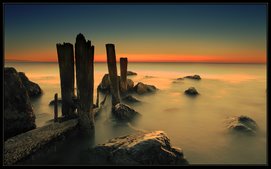







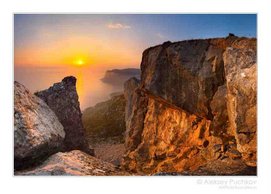





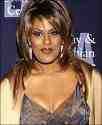

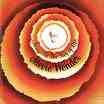
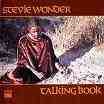

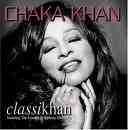
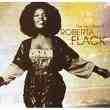

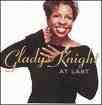
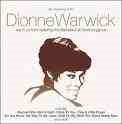
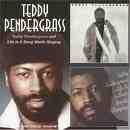
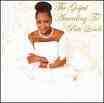


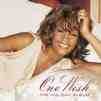

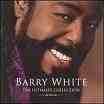

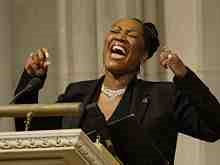




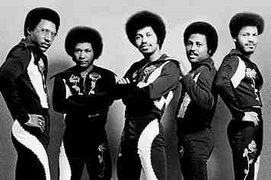
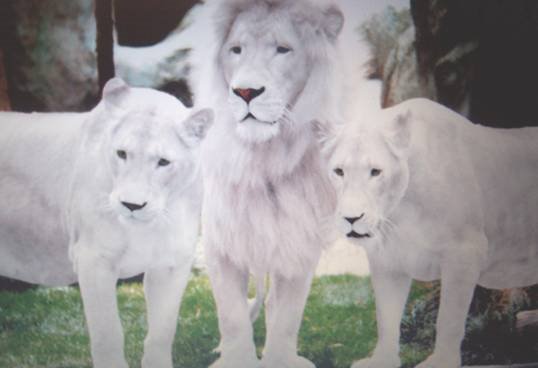






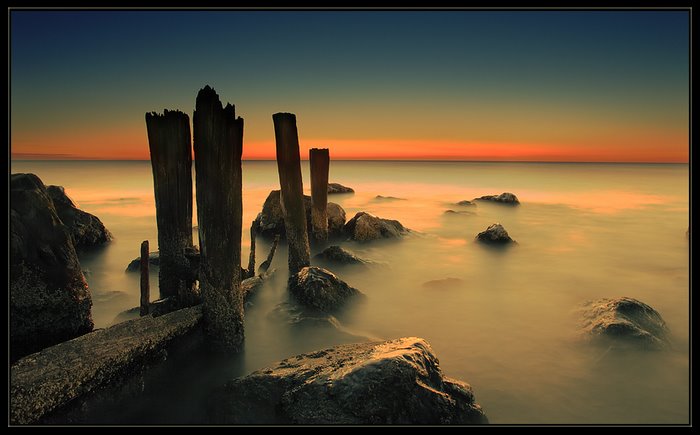
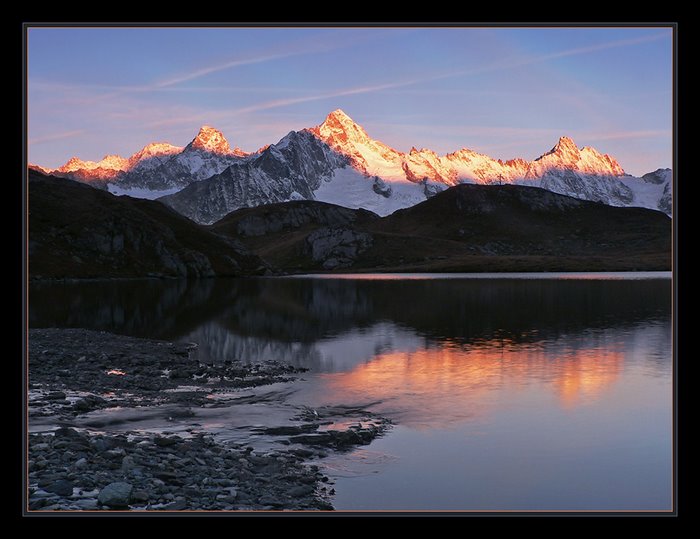


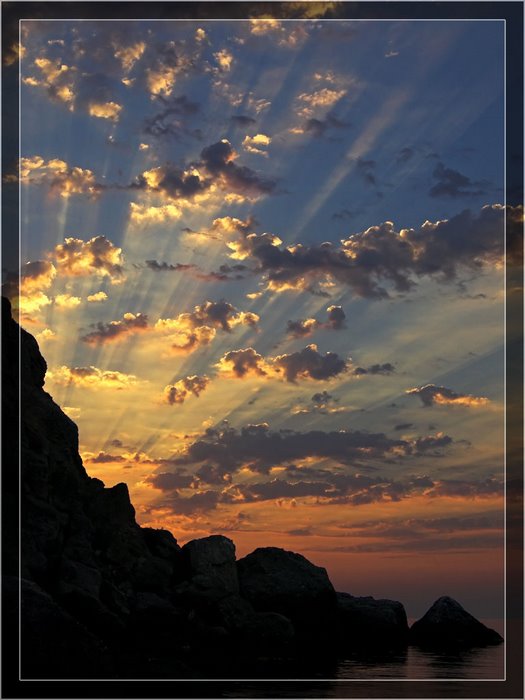


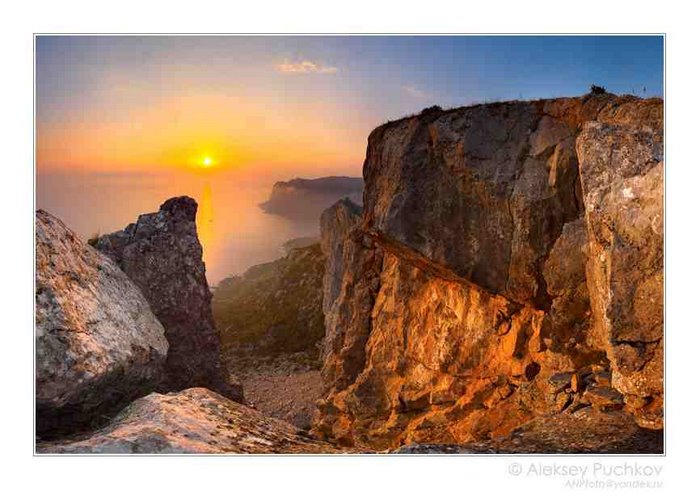

No comments:
Post a Comment